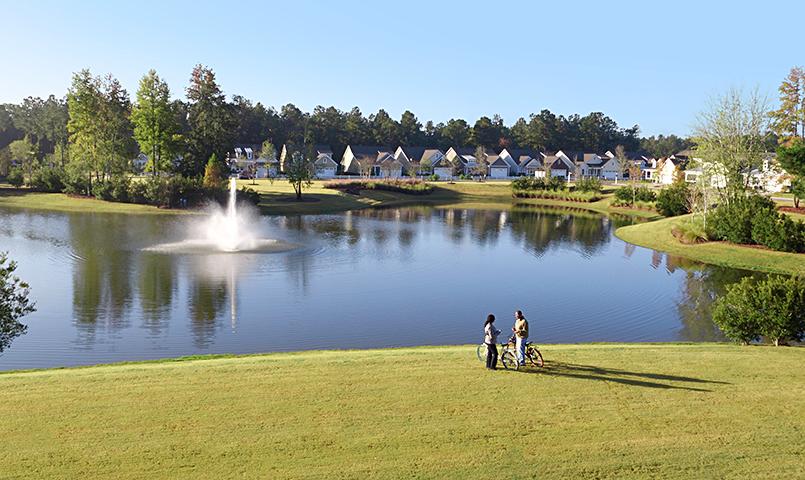by Robert Borges on September 17, 2024
7-minute read
South Carolina has become a popular retirement destination, and it's no surprise why. Known for its mild climate, coastal beauty, and laid-back lifestyle, the Palmetto State offers an appealing mix of natural scenery, culture, and affordability. However, as with any location, retiring in South Carolina has its advantages and disadvantages. This article will dive into the retiring in South Carolina pros and cons to help you determine if it's the right place for your golden years.
The Pros of Retiring in South Carolina

Affordable Cost of Living
One of the biggest draws for retirees is the relatively low cost of living in South Carolina. Compared to other states along the East Coast, housing prices are lower, and overall expenses such as utilities, groceries, and transportation are reasonable. Retirees who are budget-conscious or living on a fixed income may find South Carolina’s affordability appealing.
In addition to housing, the state offers a variety of tax incentives for retirees. South Carolina does not tax Social Security benefits, and the state provides generous deductions for other types of retirement income, such as 401(k) or pension distributions. Property taxes are also relatively low compared to the national average, which can make a significant difference for homeowners. The state’s overall cost of living is 6% lower than the national average, which is a big benefit for retirees looking to live in South Carolina.
Mild Climate and Natural Scenery
For retirees looking to escape harsh winters, South Carolina’s climate is a major plus. The state enjoys a mild climate with hot summers and temperate winters, particularly in the southern and coastal regions. Snowfall is rare in most parts of the state, and the moderate winter temperatures allow for year-round outdoor activities.
Cities like Charleston, Myrtle Beach, and Hilton Head Island offer coastal living, where retirees can enjoy the ocean breeze without the fear of long, frigid winters. The pleasant weather makes it easy for retirees to enjoy golf, hiking, fishing, or simply strolling along the beach.
As far as its landscape, South Carolina boasts everything from the picturesque beaches along the Atlantic coast to the lush mountains and lakes in the Upstate region. Active adult retirees who are outdoor enthusiasts will find plenty to do here, from visiting state parks to taking scenic drives through the Blue Ridge Mountains.
Many of South Carolina’s coastal towns like Beaufort and Bluffton offer a slower pace of life and breathtaking views, ideal for those seeking peace and tranquility. Whether you're interested in fishing, boating, birdwatching, or simply enjoying the sunset, South Carolina's natural beauty provides endless opportunities for relaxation.
Healthcare Facilities
Healthcare is a top concern for retirees, and South Carolina offers access to quality medical facilities, particularly in its larger cities. Places like Charleston, Columbia, and Greenville are home to well-regarded hospitals and medical centers that specialize in senior care and offer a range of services, from primary care to specialized treatments.
For retirees living in smaller, more rural areas, healthcare access may not be as immediate, but the state’s larger medical networks can still offer support through satellite facilities and regional care.
Variety of Retirement Communities
There is an array of unique and desirable 55+ communities in South Carolina, particularly near cities like Hilton Head Island, Myrtle Beach, and Charleston. These South Carolina retirement communities cater specifically to residents 55 and over, offering amenities like golf courses, swimming pools, fitness centers, and planned social events. Whether you prefer an oceanfront condo or a home within a private, gated neighborhood, there are plenty of options that provide comfort, security, and social engagement.
Among the most popular 55+ communities in the country, the Jimmy Buffet inspired Latitude Margaritaville communities are a haven for retirees looking for laid-back living. Among the various locations, Latitude Margaritaville Hilton Head tops the list. If you’re interested in learning more, here’s a deeper dive of Margaritaville retirement living explored.
Rich History and Culture
Retirees who appreciate history and culture will love South Carolina's charm. Cities like Charleston are steeped in American history, featuring antebellum architecture, museums, and historic landmarks. You can enjoy walking tours of Civil War battlegrounds, plantation estates, or the historic homes that line Charleston’s cobblestone streets.
Bottom line, if you’re a history buff, you’re going to love retiring in South Carolina. Kings Mountain National Military Park chronicles the Upcountry role in the Revolutionary War, Charleston is one of the nation’s oldest cities (founded in 1670), and there’s no other place in the country where you can see and learn more about the Civil War.
The state also boasts a rich cultural scene with festivals, theater performances, and art galleries, offering endless opportunities to immerse yourself in Southern culture. The best part? Southern hospitality is the real deal, and it’s out in full force within retirement communities in South Carolina. In fact, both Charleston (#7) and Greenville (#1) made The Traveler’s list of Friendliest Cities in the U.S. Also on the list of friendly cities is Savannah, GA. With many similarities to SC, Georgia’s premier 55 plus communities are equally appealing to retirees.
The Cons of Retiring in South Carolina

High Humidity and Heat
While the mild winters are a significant pro, South Carolina’s summers can be intense. The heat and humidity, especially in the coastal and lowland areas, can be uncomfortable for some seniors. The summer months regularly see temperatures climbing into the 90s, with humidity levels that can make the air feel even hotter.
Those who are sensitive to heat or who prefer cooler climates might find South Carolina’s summers overwhelming. It’s important to consider whether you're prepared for hot, sticky days during the height of summer. In addition, South Carolina’s warm, humid climate can make it a breeding ground for pollen and allergens. If you’re planning to retire in South Carolina and suffer from seasonal allergies, spring and summer can be particularly challenging as pollen counts rise.
Hurricane Risk
One of the drawbacks of living in a coastal state is the risk of hurricanes. South Carolina's coastal regions are prone to tropical storms and hurricanes during the Atlantic hurricane season, which runs from June through November. Residents in coastal cities like Charleston, Myrtle Beach, and Hilton Head Island may need to prepare for potential evacuations or property damage during hurricane season.
While most inland areas are less affected by hurricanes, retirees considering coastal living should be aware of this natural hazard and take the necessary precautions, such as purchasing appropriate insurance and developing an emergency plan.
Limited Public Transportation
South Carolina is largely a car-dependent state, particularly outside of its major cities. Retirees who don’t plan to drive or prefer easy access to public transportation may find it challenging to get around. Most towns and rural areas lack comprehensive public transit systems, so owning a car is almost a necessity for getting to medical appointments, shopping, or social activities.
In cities like Charleston and Columbia, public transportation options are available but can still be limited compared to larger metropolitan areas in other states.
Inconsistent Healthcare in Rural Areas
While South Carolina offers excellent healthcare facilities in its larger cities, retirees in more rural parts of the state may face limited access to specialized care or have to travel farther for certain medical services. Smaller towns may not have the same level of healthcare infrastructure, making proximity to major cities an important consideration for retirees who have ongoing health concerns.
Growing Population and Tourism
South Carolina has become a hotspot for tourism and relocation, which means that popular areas, particularly along the coast, can get crowded during peak tourist seasons. Cities like Myrtle Beach and Charleston see an influx of visitors during the summer months, and while this is great for the local economy, it can make it harder to find quiet, peaceful spots.
Increased population growth can also lead to higher real estate prices in certain areas, which could affect retirees seeking a more affordable home in the state's most popular regions.
Is Retiring in South Carolina Right for You?
When weighing the pros and cons of retiring in South Carolina, it's clear that the state has much to offer retirees. From affordable living costs and scenic beauty to cultural richness and a warm climate, South Carolina appeals to many seeking a peaceful and enjoyable retirement. However, factors like high humidity, the risk of hurricanes, and healthcare access in rural areas are important considerations.
Ultimately, whether South Carolina is the right place for your retirement depends on your personal preferences, health needs, and lifestyle goals. With careful planning and thoughtful consideration, South Carolina could be the perfect place to enjoy your retirement years.
Thinking about moving to South Carolina? With a spotlight on 50+ popular communities throughout the state, let PCR be your guide!
